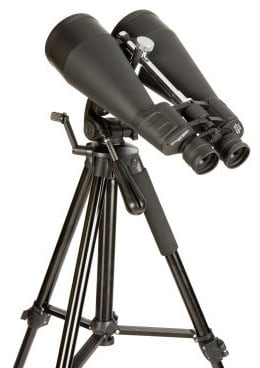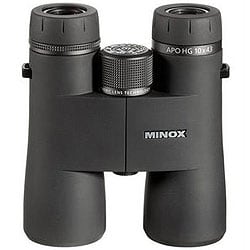How to Locate High-Quality Binoculars for Stargazing Lovers
How to Locate High-Quality Binoculars for Stargazing Lovers
Blog Article
The Significance of Field Glasses in Education and Scientific Research Study: Exactly How These Optical Instruments Contribute to Learning and Expedition
The assimilation of field glasses into instructional settings and clinical research study is typically overlooked, yet their contribution to boosting observational abilities is significant. In self-controls varying from ecological science to astronomy, field glasses offer as important tools that advertise questions and vital reasoning.
Enhancing Observational Skills
In instructional and research setups, making use of field glasses significantly improves observational abilities amongst students and practitioners alike. These optical tools promote a deeper understanding of far-off topics, making it possible for users to observe information that would certainly otherwise stay unseen. By using field glasses, students can examine wildlife, huge phenomena, and geological formations, cultivating a much more extensive connection to the topic.
Binoculars offer as vital tools in area studies, motivating students to engage actively with their environment. With boosted monitoring, they can gather data better, bring about boosted logical skills. This hands-on experience enables the growth of vital thinking, as students should interpret what they see and relate it to theoretical knowledge.

Bridging Theory and Method
Observational abilities created via the usage of binoculars naturally bring about a much more profound assimilation of academic expertise with functional application. By involving in straight observation, learners can change abstract concepts right into concrete experiences. This synergy fosters a much deeper understanding of clinical principles as pupils link academic frameworks with real-world sensations.
For circumstances, when researching avian biology, trainees can apply their understanding of bird composition and actions via the lens of field glasses, observing traits such as plumage variation, feeding routines, and migratory patterns. This straight involvement not only strengthens theoretical ideas yet additionally grows vital thinking and analytical skills.
Additionally, using binoculars encourages students to develop hypotheses based on their observations, thereby improving their scientific inquiry abilities. They can actively test these theories in the area, bring about a much more experiential discovering environment that promotes interest and expedition.
Fundamentally, binoculars act as a vital tool in bridging the void in between class learning and fieldwork - Binoculars. They empower trainees to come to be energetic individuals in their education, encouraging an all natural method to comprehending the natural globe and its complexities. Therefore, the integration of concept and practice is important for fostering informed and engaged students
Applications in Environmental Scientific Research
Making use of binoculars in environmental scientific research boosts the capacity to observe and evaluate ecological communities with greater accuracy. These optical instruments are crucial for performing field studies, enabling researchers to check wild animals populations, analyze plant wellness, and examine environment problems without disrupting the all-natural setting. Binoculars facilitate the recognition of types at numerous distances, enabling scientists to gather vital data on biodiversity and habits.
In environmental research study, binoculars are vital tools for ornithologists examining bird habits and migration patterns. They enable researchers to tape observations over extended periods, adding to beneficial longitudinal studies - Binoculars. Furthermore, field glasses play an essential function in habitat assessments, as they enable the in-depth monitoring of plant neighborhoods and their communications within communities
Environmental instructors also gain from binoculars, as these tools boost experiential learning possibilities. Trainees can involve directly with their environments, cultivating a much deeper appreciation for ecological systems. By including binoculars right into instructional programs, teachers can influence the next generation of environmental researchers.
Role in Astronomy Education And Learning
The usage of field glasses in astronomy education gives an available entrance for trainees and fanatics to check out holy phenomena (Binoculars). Unlike large telescopes, field glasses are portable, user-friendly, and reasonably economical, making them a suitable introductory tool for observing the evening skies. Trainees can easily involve with the cosmos, fostering a hands-on learning experience that enhances their understanding of huge principles
Binoculars enable individuals to observe a range of holy objects, consisting of the Moon, worlds, and celebrity clusters. Notably, binoculars offer as a bridge to extra intricate expensive tools, offering foundational experiences that can spark deeper interest in the field.
In instructional setups, led binocular sessions can advertise team collaboration and discussion, boosting the discovering experience. The shared experience of observing heavenly bodies can grow a feeling of area amongst learners. Overall, field glasses play a vital duty in demystifying astronomy, making it friendly and interesting for individuals in any way levels of education.

Motivating Interest and Inquiry
Binoculars not just promote the monitoring of holy sensations but likewise spark a feeling of interest and query amongst pupils. By providing a better take a look at remote items, binoculars motivate students to ask inquiries and check out the setting around them. This device transforms passive knowing right into an active, interesting experience, see post promoting a much deeper understanding of scientific principles.
When students use binoculars to observe wild animals, landscapes, or astronomical items, they establish empirical skills that are critical for clinical questions. The act of concentrating on particular details triggers them to formulate theories, conduct examinations, and attract final thoughts based upon their monitorings. This process not only improves their crucial thinking capacities but additionally nurtures a long-lasting enthusiasm for expedition.
Furthermore, binoculars can link the space between theoretical expertise and real-world application. As students observe sensations firsthand, they can connect classroom discovering to practical helpful resources experiences, making education much more pertinent and purposeful. Ultimately, making use of binoculars in academic settings offers as a stimulant for inquisitiveness, empowering pupils to seek expertise with enthusiasm and promoting a feeling of wonder about the world around them. By doing this, binoculars play an essential duty in inspiring future this link generations of scientists and thinkers.
Final Thought
In recap, binoculars serve as essential tools in education and learning and scientific research study, considerably enhancing observational abilities while connecting the void between theoretical knowledge and sensible application. Their diverse applications in fields such as ecological scientific research and astronomy highlight their relevance in fostering curiosity and questions among trainees. By facilitating comprehensive evaluations of remote topics, field glasses not just inspire the future generation of researchers however additionally cultivate an extensive recognition for expedition and the scientific technique.
Report this page